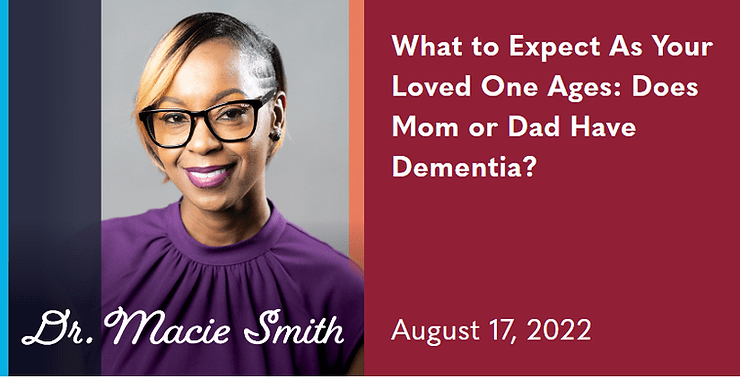
Memory lapses can be a normal part of aging, but when are they cause for concern? Aging expert Dr. Macie Smith explains the warning signs to look for.
Occasionally forgetting where the keys are, walking into a room and forgetting why or not being able to find the right word are all a normal part of aging. However, when someone experiences memory lapses more often, frequently repeats themselves, forgets recent or routine information or demonstrates increased agitation without a trigger, these could be signs of a more significant cognitive decline like dementia.
Age-related memory loss vs. dementia
Age-related memory loss is different from memory loss associated with types of dementia such as Alzheimer’s disease in that age-related memory loss doesn’t significantly affect one’s ability to carry out daily tasks. Dementia, on the other hand, is marked by a persistent, disabling decline in two or more intellectual abilities such as memory, language, judgment and abstract thinking.
What to do if you have concerns
If you don’t see your loved one often, you might notice a significant change in their cognitive ability from one visit to the next. If you see them more frequently, it’s possible you may notice gradual changes over a period of time.
If you have concerns, talk to other family members and close friends to see if they have noticed similar changes. But keep in mind, if you have a concern, it is a valid concern, and there is no harm in pursuing a consultation for your loved one with their primary care physician.
One thing I can’t stress enough is that it’s critical that you address the concern with a health care provider as soon as you become aware of it. Early intervention for more serious cognitive decline is the best way to preserve quality of life.
Acknowledge your emotions
Speaking of quality of life, it’s important to recognize your emotions as you come to terms with your loved one’s diagnosis. It’s normal to feel sadness, grief, fear, anger, hopelessness and resentment. I encourage you to feel your feelings, but don’t allow them to prevent you from addressing the concerning behaviors you have noticed.
There are many possible medical reasons for cognitive decline that are NOT dementia, so don’t think the worst from the very start. These may include a urinary tract infection, dehydration, a vitamin B12 deficiency or a medication interaction or side effect, to name a few.
So, take a deep breath, acknowledge that you are taking positive action to promote your loved one’s quality of life, and take it one day at a time.
Next time, Dr. Macie Smith will discuss how to go about making an appointment to have your loved one evaluated.